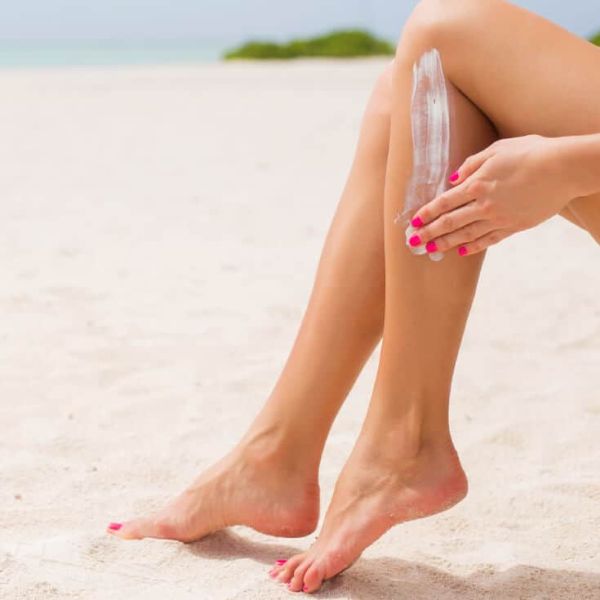Zinc Oxide Benefits for Protecting Your Skin from the Sun
Zinc oxide is a mineral.Zinc oxide topical (for the skin) is used to treat diaper rash, minor burns, severely chapped skin, or other minor skin irritations.
Zinc oxide rectal suppositories are used to treat itching, burning, irritation, and other rectal discomfort caused by hemorrhoids or painful bowel movements.
1. Protects Skin from Sun Burns & Damage
The natural sun-protecting benefits of zinc oxide have been the focus of much skincare research over the past three decades. Zinc oxide has been found to offer protection against “broad spectrum ultraviolet rays” (UVA/UVB), which is not always the case with chemical sunscreens that only block one type of UV light.
Today zinc oxide is added to many more skincare products beyond sunscreen — it’s also an ingredient in beauty lotions or foundations including mineral makeup, concealers, moisturizers, BB creams and anti-aging formulas. In the past, zinc oxide sunscreens had a bad reputation for causing noticeable white streaks on the skin, a sign that the zinc didn’t fully absorb. However, in recent years skincare technology has come a far way, and today you can find microfine zinc oxide formulations that no longer leave behind streaks or a chalky feel. Again, these tiny particles are considered safe, although some scientists believe further research is needed to make sure they are safe for long-term use in humans.
2. Helps Treat Acne
For the treatment of acne, zinc oxide is usually combined with other anti-inflammatory or anti-bacterial zinc substances, including antioxidants, zinc gluconate or zinc sulfate, and sometimes antibacterial agents. Together these elements help to lower the appearance, severity, duration and pain of cystic/hormonal acne blemishes and breakouts.
A 2013 study printed in the Journal of Drugs in Dermatology, along with other research regarding zinc for acne, show that there are several ways that zinc oxide can help treat and prevent acne.
3. Helps Prevent Bacterial Infections
With the ability to act like a mild astringent, zinc oxide can help keep harmful bacteria from causing infections of the skin, and act as a natural skin-drying agent. Traditional uses of zinc oxide products included treating wounds following surgery and applying salves inside the mouth to treat ulcers or sores. As an essential mineral, zinc has an important role of regulating enzyme functions that are needed to repair epidermal wounds of the skin and form new collagen/connective tissue.
A 2003 study published in the Journal of Nutrition found that zinc oxide likely helps to reduce bacterial infections not by killing bacteria, but by inhibiting the adhesion and internalization of bacteria. Zinc oxide also helps to decrease permeability, increase tightness of junctions so that bacteria can’t make their way through, and reduce inflammation through modulating cytokine gene expressions.
